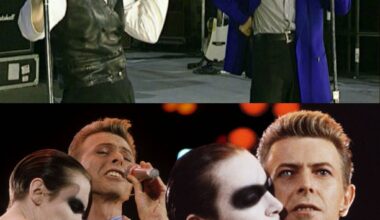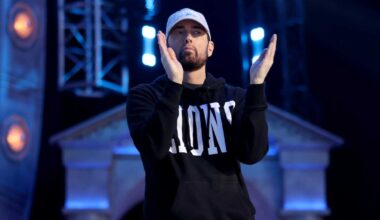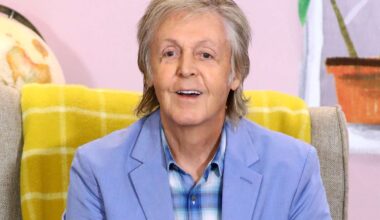On July 13, 1985, Queen delivered what many consider one of the greatest live performances in rock history during Live Aid at Wembley Stadium. Billed as The Greatest Show On Earth and a “global jukebox,” the event brought together some of the world’s biggest music stars to raise funds for famine relief in Africa. For Queen, it was the defining moment of their career—an electrifying 20-minute set that captivated a crowd of 100,000 at Wembley and a staggering 1.9 billion viewers worldwide.
In interviews over the years, guitarist Brian May has provided insight into the strategy, emotion, and sheer excitement behind Queen’s iconic performance. Speaking to MOJO magazine in 2017, May recalled the instructions from Live Aid co-creator Bob Geldof: “This is a global jukebox, don’t get clever, play the hits.” Taking that directive to heart, Queen compressed six of their biggest songs into a powerful setlist designed for maximum impact, opening with an abridged Bohemian Rhapsody and culminating with the crowd-rousing anthems We Will Rock You and We Are The Champions.
May reflected on the unique pressures of the day in a 2023 interview with Total Guitar, describing the event’s hectic pace as “kind of the Wild West” with fast turnarounds between acts and no precedent for such a massive global concert. Despite the stress, May said, “there was so much joy and excitement that overrode everything.”
The day itself was filled with memorable moments. May fondly remembers arriving at Wembley by helicopter, witnessing Status Quo open the show from the royal box alongside Prince Charles and Princess Diana. “Princess Diana had a lot to do with that,” May said, noting how her presence helped make rock ’n’ roll “okay for royalty.”
Between sets, May even managed a trip to a local fair with his children, soaking in the atmosphere as radios across London broadcast the unfolding event. But when it was time for Queen to take the stage, the adrenaline hit hard. “The moment when we were going on was a mixture of excitement and terror,” he recalled. “It was an unusual experience from the start, not just a rock concert at all. Everyone was there for Bob and for that cause – those starving people.”
May described the performance as Freddie Mercury’s finest hour. “Freddie rose to the occasion,” he said. “He was already a master of the art of communicating with a football stadium full of people. And when we did Radio Ga Ga and the whole audience did the double handclap thing, I remember getting chills in that moment. It was the same for We Will Rock You, and at the end they all sang We Are The Champions.”
Despite the show-stopping impact, May stressed that Queen’s goal wasn’t to outshine the other performers but to contribute earnestly to the cause. “We didn’t go there to do that,” he said. “We went there to do our bit. I think the whole thing was very pure and genuine. Nobody was trying to capitalise on it.”
May admitted that the set wasn’t flawless—the rushed nature of the performance led to “tense moments,” and he was aware the band’s playing was “a bit ragged” in places. But the overwhelming energy, especially Freddie’s commanding presence, made those imperfections irrelevant.
Looking back, Brian May’s reflections reveal the blend of nerves, joy, and raw talent that propelled Queen to deliver a timeless moment at Live Aid—an unforgettable showcase of music’s power to unite and inspire on a global scale.





